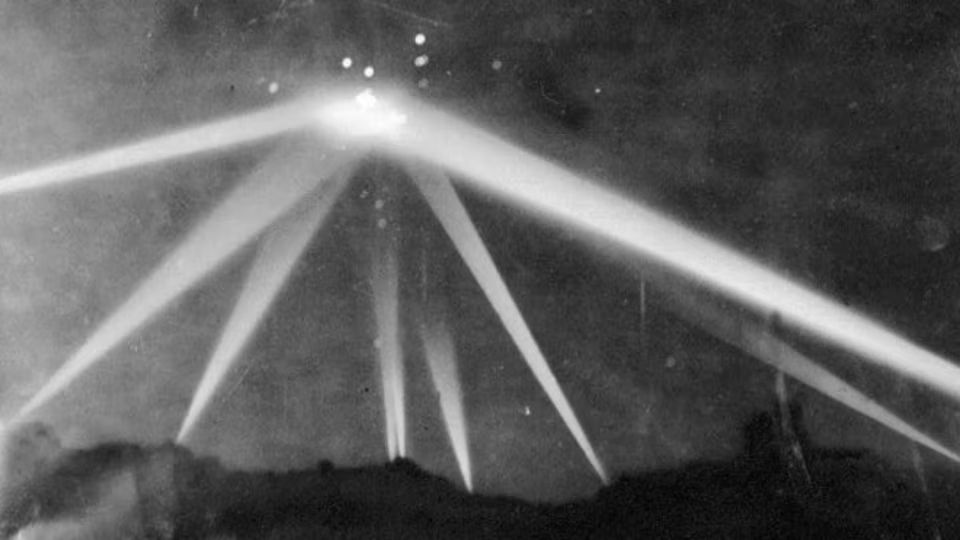‘THEATERS OF WAR’ HIGHLIGHTS POTENTIAL PROPAGANDA PROBLEMS IN MOVIES
COMMENT
SHARE

Believe it or not, the U.S. government has a hand in the works of Hollywood and the production process of your favorite military movies. The new documentary Theaters of War is based on the filmmaking process and the hand the Pentagon has in the creation of military-themed movies. More like this:11 of the Best Military Movies in 2022 to Binge-Watch Now
'Theaters of War' Documents the Government’s Sway on Hollywood
Theaters of War was directed and narrated by a communications studies professor from the University of Georgia: Professor Roger Stahl. The documentary includes interviews with Tom Secker and Matt Alford, two avowedly anti-war journalists. They each have, over the years, obtained documents about the DoD’s Production Support Program. Stahl also engages with other scholars, angered Veterans, PR insiders, and industry producers to reveal the unsettling truth behind the hand the United States government has in the creation of military films. Theaters of War also features interviews with Oliver Stone, Tricia Jenkins, Tanner Mirrlees, and others. The DoD’s Production Support Program allows Hollywood producers to get access to DoD gear, vehicles, personnel, and other resources when wanting to make a movie or show that portrays the United States military. But, Hollywood producers are only allowed to do so if they willingly turn in a copy of their script for approval. Sometimes for movies about the military, filmmakers will make edits to their scripts to gain approval from the Pentagon and get their films made, and the ones who don’t often never get their films made. But if the movies do get approval from the Pentagon, it sometimes lowers the cost of production exponentially. Related read:How'd ‘Purple Hearts’ (Netflix) Get Permission to Film at Camp Pendleton?
Is the Pentagon Creating Propaganda in Movies?
For years, there’s been a debate about whether or not the Pentagon’s advisory over military movies creates American propaganda in movies. The question is: Do Americans really care about the Pentagon’s program, and is it even really considered censorship or military propaganda? In the documentary, Theaters of War, all of the interviewees view the Pentagon’s “creative control” as silent propaganda that allows the U.S. military to depict how they’re seen on screen. There are people who Stahl describes as “showstoppers” who can keep a film project from gaining military support. These “showstoppers” can also keep films from portraying military sexual assault, suicide, fragging, friendly fire incidents, American war crimes, and many more important topics that don’t necessarily present the military in a positive light.
The Debate Around Adding Preview Disclosures to Movies With Propaganda
As you may know, movies often have warnings and mandatory disclosures at the beginning of the film during their previews for things like violent acts, nudity, and alcohol use. Since the government is involved in the production of military films, scholars and film industry professionals want to begin adding the disclosure of whether a television show or movie received support from the Department of Defense production support program. Since the late 1940s, the military has had an established Hollywood liaison office. Over the years of them having this, the Department of Defense has supported more than 2,500 movies and television shows related to the U.S. military. Many productions today sometimes have a big enough budget to get out of gaining the Pentagon’s approval. But, although gaining support from the Pentagon can lower the cost of the production entirely, they have the power to limit the creativity and vision of the filmmakers. This leaves a propaganda poster in the place of what once may have been a great film with a unique vision. The documentary Theaters of War is hoping to bring awareness to this topic and what the Pentagon has been taking part in as a part of the film and television industry. Stahl’s goal is not to push opinions about the right or wrongs of the Pentagon’s program; instead, he wants viewers to decide for themselves: Is this creating propaganda movies? Or should there be a change? Read next:Top 15 Best Sniper Movies To Binge All Year Long
Join the Conversation
BY MEAGHAN MACDOUGALL
Military Lifestyle & History Writer at VeteranLife
Meaghan MacDougall is a Contributing Writer at VeteranLife.com.
Expertise
Meaghan MacDougall is a Contributing Writer at VeteranLife.com.



